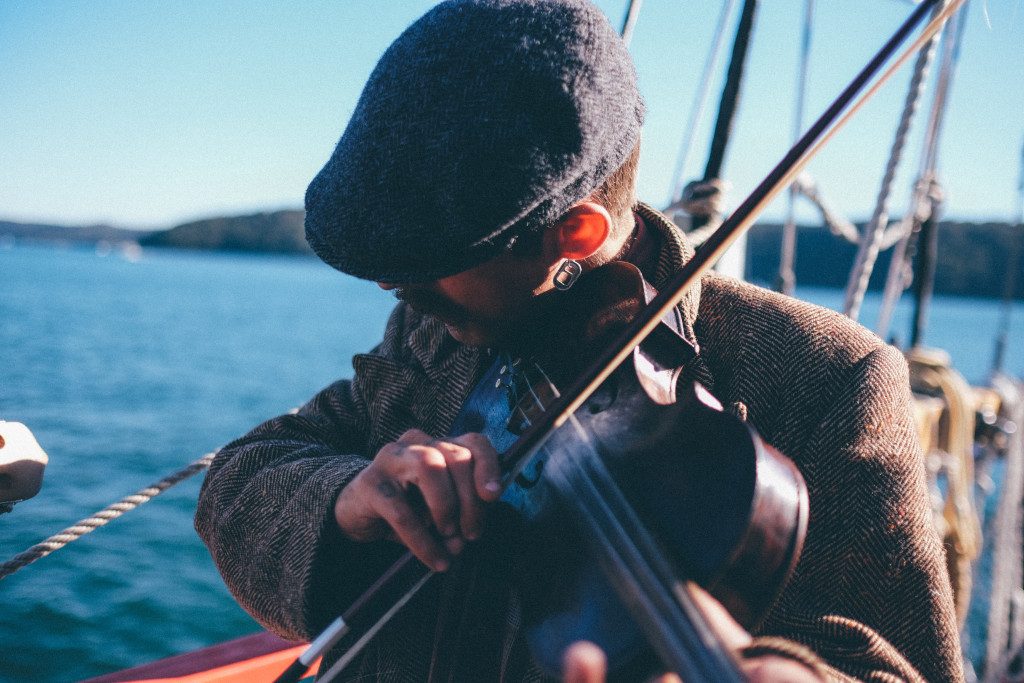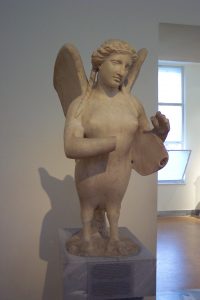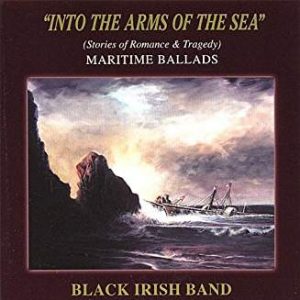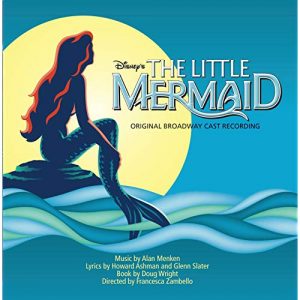
Mermaid songs from sirens to Disney
We don’t give Ursula, the Sea Witch, enough recognition.
Not only is she a fantastic Disney villain, but she is also one of the cleverest ones. Proof? Her contract with Ariel: a human body in exchange for her voice and soul.
But why her voice?
The obvious answer is that she did it to prevent Prince Eric from recognizing Ariel right away, but the real answer is deeper than that.
A mermaid’s voice is essential to her identity, as much as her tail. Marmaids swim and sing mermaid songs, after all.
This association of music and mermaids is not an invention of the House of Mouse. Since ancient times, these sea creatures have always been seen as musically gifted.
The sirens in Ancient Greece started it all.

The myth of the mermaid song started—much like democracy and olive oil—in Ancient Greece.
According to their mythology, the sirens were half-woman half-bird creatures that lurked in the Mediterranean ocean. Their voices were so angelic and beautiful that they possessed magical qualities that enticed men to drown themselves, should they listen to it.
Kind of like what listening to Adele during a rainy day makes you feel.
Eventually, the bird-like sirens started possessing fish-like qualities, merging with the image of sea maidens many cultures already had. Thus, the association between mermaids and hypnotic songs began.
The middle ages solidified the myth.
From the 5th to the 15th century, Christianity took over Europe. Religious piety required modesty, chastity, and a fear of the unknown. Subsequently, ancient myths and legends about mermaids expanded as a cautionary tale against lust and impulsive behavior.
All thanks to the power of their seductive songs.
The Renaissance brought a new life to the mermaid songs.
This historical period—ranging between the 15th and 17th centuries—was defined by an intense appreciation of ancient Greek classics. Including, of course, a newfound love for the mermaid myth.
One of the oldest mermaid songs we know of is The Mermaid—a sea ballad that eventually became a sea shanty. It dates back to the mid-18th century, and sings about a ship’s doom, as prophesized by its encounter with a mermaid.
Similarly, we have the Swedish Duke Magnus and the Mermaid, composed in 1867 by Ivar Hallstrom. The melancholic melody explores the myth of Magnus Vasa, a Swedish prince that allegedly threw himself to his castle’s moat to be with his mermaid lover.
The gloomy mermaid of the early 20th century.
The late half of the 19th century and the start of the 20th one saw a dramatic increase in mermaid-themed compositions and mermaids songs.
Maurice Ravel’s suite Gaspard de la nuit contains Ondine, a piece based on the eponymous nymph, associated with the mermaid tale. Similarly, Claude Debussy’s Nocturnes includes the movement titled Sirenes, while Antonín Dvořák’s Rusalkaexplores the tragic myth of the Slavic mermaids.
All these instrumental pieces, while undoubtedly beautiful, are also profoundly melancholic—the kind that makes you want a cup of wine right away. This association of the mermaids with sadness is a consequence of the cultural prominence of Hans Christian Andersen’s The Little Mermaid, published in 1836.
And so, Disney arrived.
The 20th century saw the birth of a new medium—the audiovisual one. The fast-paced technological prowess allowed films to dominate mainstream pop culture across the world.
With a brand new stage to take over, the long-term fascination of humanity with mermaids soon blossomed into a full-blown phenomenon, not in small part thanks to the success of Splash.
But then, in 1989, Disney changed the game with the release of The Little Mermaid. The musical animated film not only marked the rebirth of the House of Mouse, but it also gave mermaids its most distinctive soundtrack. Mermaid songs like Part of Your World, Under the Sea, and Poor Unfortunate Souls have become musical staples around the world.
I bet you’re singing one of them right now.
Saying Disney changed the game would be an understatement. What happened afterward was a complete takeover—mermaids were, suddenly, everywhere.
Mermaid songs take over the musical world.
The success of Disney’s The Little Mermaid turned it into a successful Broadway musical, including a plethora of new mermaid songs. The Barbie movie franchise released three animated films centered on mermaids, each of them with their own catchy tunes.
In Japan, the association of mermaids with music is taken to the next level. The animated series Mermaid Melody Pichi Pichi Pitch stars a group of mermaid princesses that can weaponize their voices. So naturally, they turn into pop singers to fight against evil. With the power of incredibly catchy tunes.
Mainstream pop music also jumped on the mermaid hype train. And talking about Train—their song Mermaid took over the world in 2012 with its catchy, tropical rhythm. On the other side of the cheerfulness spectrum, Skott’s Mermaid returns to the melancholic roots of the mermaid myths.
Conclusion? We’re all under the spell of mermaid songs.
With Spotify and YouTube full of mermaid playlists, it’s safe to say mermaids are intrinsically related to music in our pop culture.
Luckily, mermaid songs don’t really induce death. Otherwise, we’d all be doomed by now.







